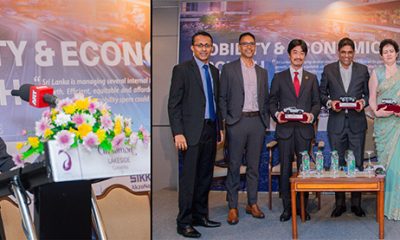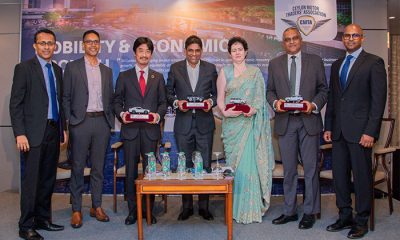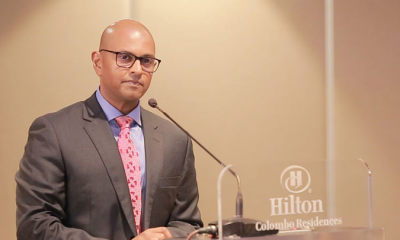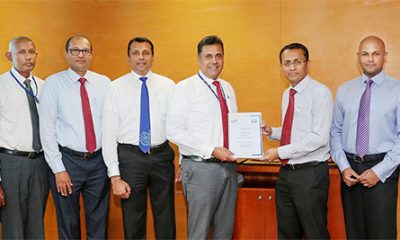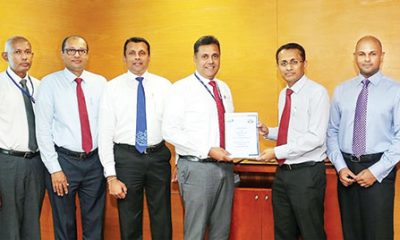Business
Need for manufacturer-authorized brand new EVs stressed

A key factor that needs to be borne in mind when introducing electric vehicles (EV) to Sri Lanka is the need to allow only manufacturer authorized brand-new vehicles of this kind into the country, it was revealed at a recent forum organized by the Ceylon Motor Traders Association (CMTA) and the Association of International Marketing Graduates in Sri Lanka (AIMG). The event which was titled ‘Road to Electrification’ was held at the Jetwing Colombo.
A press release said: ‘The joint forum was participated in by over 100 automotive industry experts, marketers, corporate leaders, executives, and professionals and was aimed at initiating productive discussion within the community and imparting knowledge on the introduction of EV to the Sri Lankan market and its impact on the economy of Sri Lanka.
‘The speakers at the event included Dr. Harsha Subasinghe, founder of VEGA, the first electric super car made in Sri Lanka; Dr. Niles Perera, logistics specialist from the University of Moratuwa; Ms. Maricor Muzones, regional program development lead for GGGI; and Lalith De Alwis, additional secretary for the Ministry of Transport and Highways. Yasendra Amerasinghe, immediate past Chairman of CMTA and CEO of Carmart (Pvt) Ltd, served as the moderator.
‘A vibrant and thought-provoking panel discussion took place, with the speakers sharing their knowledge of technical expertise, environmental protection, and regulatory policy development requirements to embrace the EV age. While both the pros & cons of the EV rollout was well highlighted, one key factor which was established was the need to strongly regulate the EV eco-system and for the need to allow only manufacturer authorized brand-new electric vehicles to the country.
‘In his introduction, Dr. Subasinghe stated that “the future for electrically powered vehicles is very bright” and delved into the benefits and issues of EVs that we need to overcome. He further stressed the importance of charging networks and the exportation of charges to other countries, and he shared his wealth of experience on batteries, controllers, etc. Speaking in terms of electricity generation, Dr. Subasinghe delved into SMR (small modular reactor) systems and the possibility of Sri Lanka adapting them.
‘Ms. Maricor Muzones spoke on GGGI, which is a treaty-based organization operating to get the principle of green growth in Sri Lanka. In her opinion, “Sri Lanka has put in many development policies, out of which the transport policy is now being reviewed for strengthening.” Although the mandate is available, how it should be operationalized is the question. “GGGI is looking at supporting the government and there should be an operational plan’. GGGI’s role is to support the government of Sri Lanka; however, Muzones believes the involvement of the private sector is vital.
‘De Alwis, as a Sri Lanka Government representative, stated, “Transport is the key factor to the economy, and there are guidelines being prepared for EV vehicles with the support of the UNDP.” De Alwis also spoke on the financial issues and the national transport action plan that is being prepared, including e-mobility, technology, environmental protection, infrastructure, etc. Concluding, De Alwis spoke on the policy changes needed and highlighted the important factors relating to the awareness of EV.’ He also stated that by 2030, there will be an action plan in place to develop renewable energy sources up to 70%, and he asked for private sector participation in this effort.
‘Dr. Niles stated that in transportation there is a lot of movement toward sustainable transportation, mentioning that EV is the fastest developing technology. The aim should be to move faster with better sustainable resources, and in order to do that, it is important to look at the supply chains for electric vehicles, such as mining and so on. He also stated that “there should be a plan to train people, provide charging stations, and build other infrastructure to support electric mobility.” Converting the existing fleet to electric vehicles is not feasible. For the transition, a new fleet of electric vehicles should be brought in, and in terms of energy, his point was to ensure Sri Lanka’s energy security while putting the required regulations and infra-structure in place.
‘The event concluded with a question-and-answer session. The corporate partners of CMTA and AIMG are SLIC, HNB Leasing, SLT-Mobitel, Sampath Bank & Emerging Media.’
Business
Relief measures to assist affected Small and Medium Enterprises
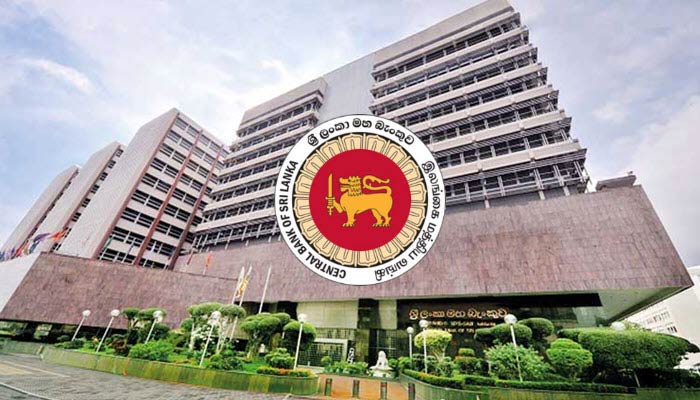
As agreed with the Sri Lanka Banks’ Association (Guarantee) Ltd. (SLBA), to provide relief measures to affected SMEs by licensed commercial banks and licensed specialised banks, Circular No. 04 of 2024 dated 19.12.2024, and its addendum, Circular No. 01 of 2025 dated 01.01.2025 were issued by the Central Bank of Sri Lanka to ensure the effective implementation of the relief measures specified in the cited Circulars in a consistent manner across all licensed banks.
In case of any rejections or disputes, borrowers are requested to contact the respective banks and to appeal to the Director, Financial Consumer Relations Department of CBSL (FCRD), if required through the following channels:
Based on the repayment capacity and the submission of an acceptable business revival plan by the borrower, the relief measures extended to affected SMEs include rescheduling of credit facilities up to a period of 10 years, extending the time to commence repayments based on the capital outstanding, waiving off unpaid interest subject to conditions, and providing new working capital loans. Despite the availability of the above relief measures, limited number of borrowers had approached licensed banks to avail themselves of these benefits to date.
In addition to the above measures, with the gradual recovery of the economy, in order to facilitate the sustainable revival of businesses that were adversely affected during the recent past, several other measures were taken by CBSL together with the banking industry.
Accordingly, inter alia, strengthening the Post Covid 19 revival units of licensed banks, CBSL issued Circular No. 02 of 2024 dated 28.03.2024 on “Guidelines for the Establishment of Business Revival Units of Licensed Banks” mandating banks to establish Business Revival Units (BRUs) to assist viable businesses that are facing financial and operational difficulties.
Under BRUs, banks may provide support to viable businesses, such as restructuring and rescheduling of credit facilities including the adjustment of interest rates, maturity extensions, providing interim financing, advisory services etc., subject to the condition that such borrowers are required to submit acceptable business plans and feasible repayment plans. As reported by banks, by the end of 2024, around 6,000 facilities had been facilitated through these BRUs.
The above cited Circulars and Guidelines can be accessed via https://www.cbsl.gov.lk
Business
Visa commits to support women entrepreneurs in Sri Lanka
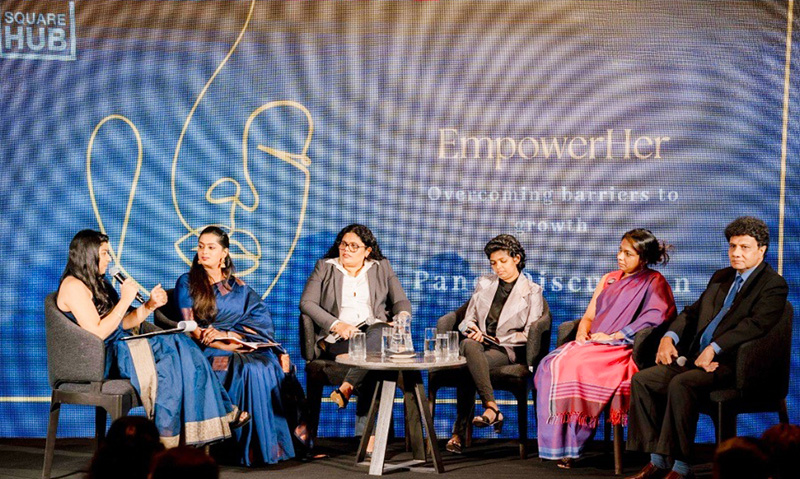
Visa (NYSE: V), the global leader in digital payments reiterated its support to women entrepreneurs across Sri Lanka as a part of its International Women’s Month celebrations across the world, by stating a firm commitment towards financial inclusion and digitization of women-led businesses, and hosted women from different walks of life in a specially curated event at Colombo.
Avanthi Colombage, Country Manager for Visa in Sri Lanka and Maldives stated, “At Visa, we believe in being the best way to pay and be paid by uplifting everyone, everywhere. This year, we celebrated International Women’s Month to support the very capable businesswomen in our country, with an event titled ‘Overcoming Barriers to Growth’ along with Square Hub, an incubator and business accelerator.”
The event by Visa brought together 35 upcoming women entrepreneurs across various sectors, including fashion, e-commerce, fintech, technology, manufacturing, and agriculture. While prominent industry experts shared views, learnings and experiences from their own journeys, the event also facilitated open discussions and networking among entrepreneurs, on how they can build and sustain thriving businesses.
Avanthi elaborates that Visa has built a firm foundation in supporting female entrepreneurship and the empowerment of women in Sri Lanka and understands the challenges women-owned businesses face when seeking capital, access, networks and guidance and continues to actively uplift women in Sri Lanka. Globally and in Sri Lanka, Visa believes that the participation of women is key to the growth of an economy. Avanthi adds, “Two years ago, when we celebrated 35 years of Visa in Sri Lanka, we announced a grant for The Asia Foundation to assist women-led small and medium businesses (SMBs) throughout the country. This initiative offered vital seed funding, skills training, and financial inclusion opportunities for women entrepreneurs, helping remove some major barriers to their success,” she recalled.
Business
Environmentalists renew concerns over Adani Group’s proposed Mannar wind power project
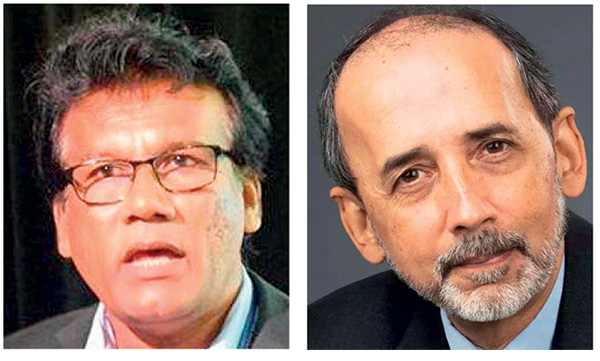
Environmental groups, including the Wildlife and Nature Protection Society (WNPS), the Centre for Environmental Justice (CEJ) and the Environmental Foundation Ltd. (EFL), are raising renewed concerns about the potential ecological impact of large-scale wind energy development on Mannar Island. Conservationists argue that the island, home to a unique and sensitive ecosystem, faces serious risks from industrial projects that may disrupt biodiversity and endanger local wildlife.
At the heart of the controversy is whether the environmental issues raised by Adani Group’s proposed wind energy project in Mannar were being adequately considered. Critics argue that tariff negotiations and economic interests overshadowed ecological assessments, potentially leading to a project that might compromise the island’s rich natural heritage.
“Can wind energy coexist with Mannar Island’s fragile ecosystem? asked environmental scientist Hemantha Withanage of the CEJ.
He told The Island Financial Review: “We must ensure that our transition to renewable energy does not come at the cost of irreplaceable biodiversity.”
Other conservationists have pointed out that environmentalists are often misrepresented as obstructionists in debates over development. “Are we being painted as enemies of progress, or is the public being misled about the real consequences of such projects? questioned Dr. Rohan Pethiyagoda, a leading environmental advocate.
With Adani’s possible withdrawal from the project, there is now an opportunity to reevaluate Sri Lanka’s approach to sustainable energy. Experts emphasize the need for a smarter, science-driven path that prioritizes both renewable energy and environmental conservation.
A joint media conference, scheduled for today at the Dutch Burgher Union, Colombo, aims to address these concerns. Organized by WNPS, CEJ, EFL and Pethiyagoda, the event will explore questions such as whether the project might resurface under a new guise and who the true beneficiaries of such large-scale energy initiatives are.
By Ifham Nizam
-

 Sports3 days ago
Sports3 days agoSri Lanka’s eternal search for the elusive all-rounder
-

 News4 days ago
News4 days agoGnanasara Thera urged to reveal masterminds behind Easter Sunday terror attacks
-

 Business5 days ago
Business5 days agoAIA Higher Education Scholarships Programme celebrating 30-year journey
-

 News2 days ago
News2 days agoBid to include genocide allegation against Sri Lanka in Canada’s school curriculum thwarted
-

 News3 days ago
News3 days agoComBank crowned Global Finance Best SME Bank in Sri Lanka for 3rd successive year
-

 Features3 days ago
Features3 days agoSanctions by The Unpunished
-

 Latest News1 day ago
Latest News1 day agoIPL 2025: Rookies Ashwani and Rickelton lead Mumbai Indians to first win
-

 Features3 days ago
Features3 days agoMore parliamentary giants I was privileged to know


